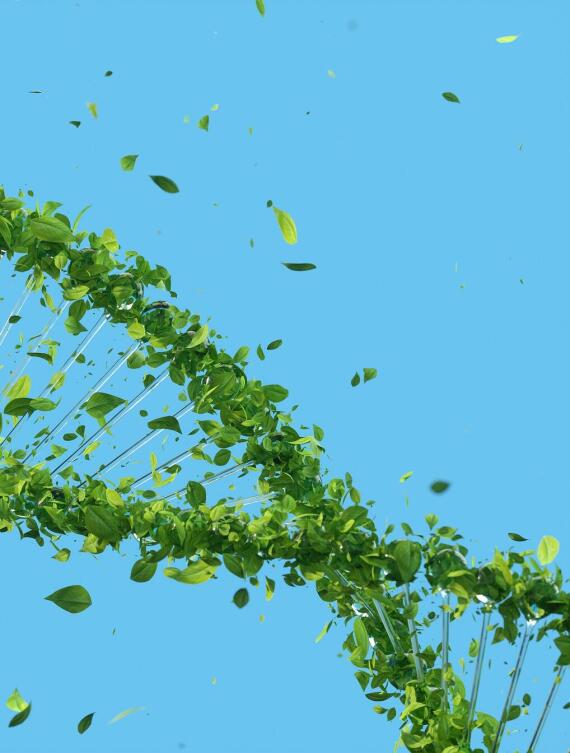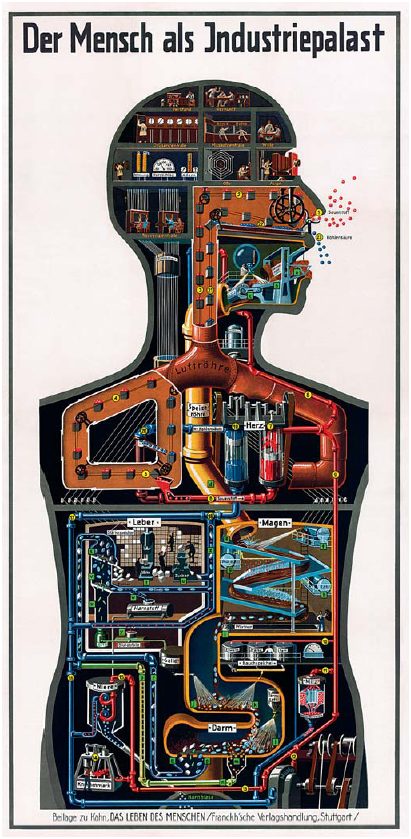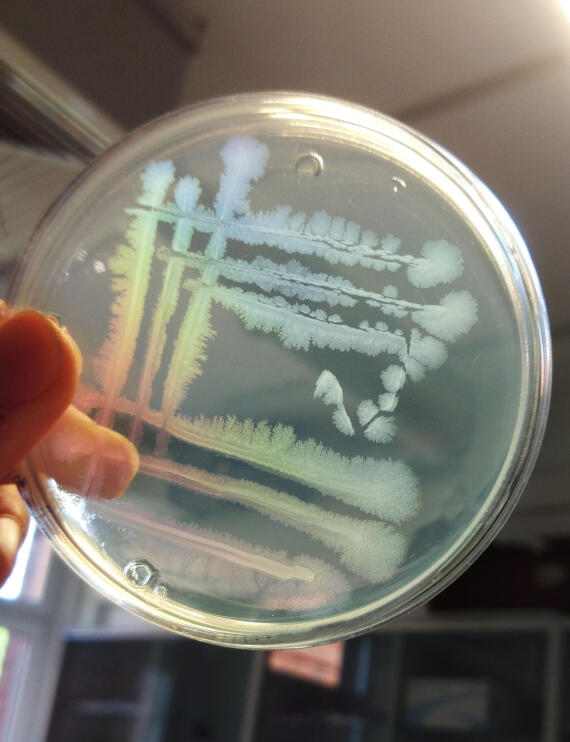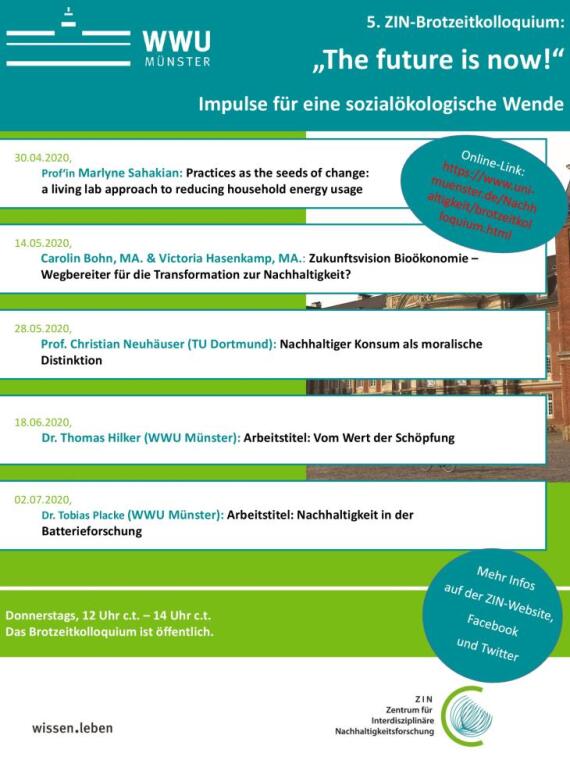News


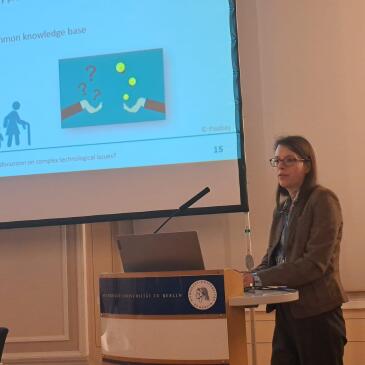
From 22-23 February, the BIOCIVIS team will be guests at the international bioeconomy conference "Bioeconomy Policies, Actors, and Transformations: Achievements, Challenges, and Recommendations" in Berlin. The organiser is the "PolDeRBio" project of Humboldt University Berlin, which is also funded by the Federal Ministry of Education and Research (BMBF). In this context, the results from the BIOCIVIS project will be presented to a primarily scientific audience.
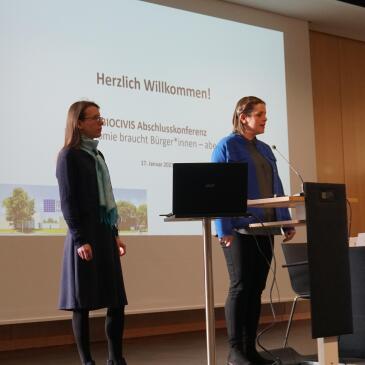
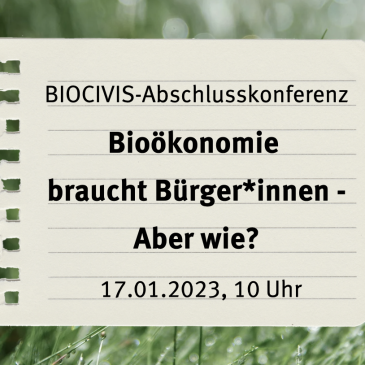
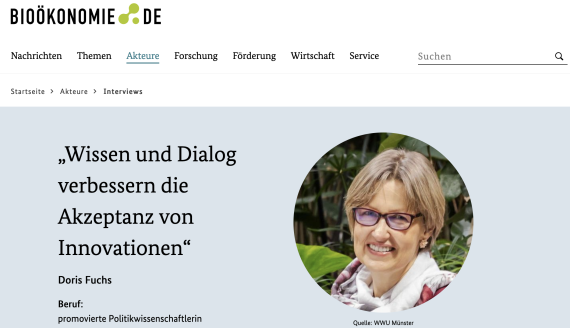
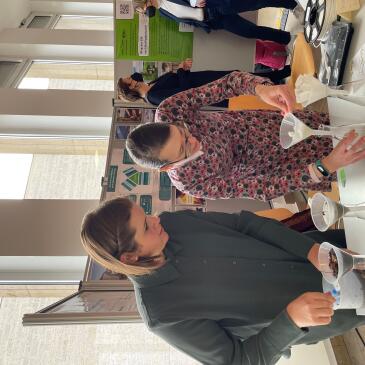
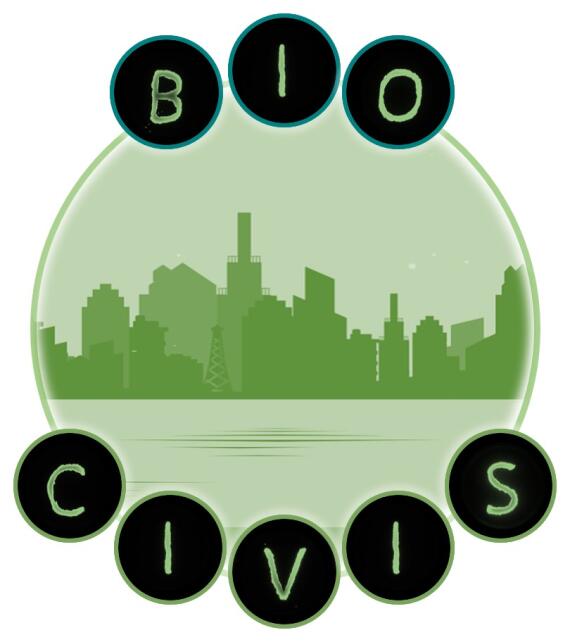


The third and last dialogue event of the BIOCIVIS research project on the topic of bioeconomy and sustainability took place from 12 to 14 May 2022 under the name Biodialog at the Capuchin Monastery in Münster. Lively discussions sprang up in the seminar room and in the monastery garden between the 14 participating citizens on the question of whether and how the bioeconomy can contribute to greater sustainability.
In addition to a video, a memory and an exhibition of bioeconomy products, the presentations by invited speakers on the topics of the Biodialogue served as the basis for the discussions. In addition, various stakeholders were present who gave the citizens their views on bioeconomy and biotechnology issues. Using concrete examples of application, the participants learned about the advantages and disadvantages of biotechnology and the bioeconomy as well as their impact on sustainability. At the end, they formulated criteria that they would like to see in the future for a sustainable bioeconomy.
Questions about sustainability in general, citizen participation and genetic engineering were also discussed. Together with the results of the previous Biodialogues in 2021, the BIOCIVIS project team now has extensive data to answer the research questions. The question of how participation on complex issues (such as the bioeconomy) can succeed will be answered by means of recommendations for policy action.
Last week, a new comic strip in the "Frag Sophie!" series, designed by the Arbeitsstelle Forschungstransfer (AFO, WWU Münster), the Abfallwirtschaftsbetriebe Münster (AWM) and the BIOCIVIS project, was published in the Westfälische Nachrichten and on the website of the "Frag Sophie!" project. The comic answers the question "What does our biowaste have to do with our future?" in a low-threshold and appealing way, addressing the topics of bioeconomy and biogas formation, among others.
The AFO project "Frag Sophie!" (English Translation: "Ask Sophie") aims to promote the exchange between society and science through the transfer of scientific knowledge and invites citizens to ask scientists questions. Representing scientists at Münster University, the titular cartoon character Sophie searches for answers to these questions together with her owl. This search for answers is depicted in a regularly published science comic, illustrated by Gianluca Scigliano and published both analogue (in the Westfälische Nachrichten) and digitally (on the project's website).
On 20 and 21 August, the second dialogue event of the BIOCIVIS project on the topic of bioeconomy took place in the Botanical Garden of the WWU Münster. This so-called "Biodialog", which was organised in cooperation with the Research Transfer Office (AFO) of the WWU Münster, was attended by 16 citizens and 9 practice partners from different areas of society. Together they discussed the opportunities and challenges of the bioeconomy with regard to the transformation towards sustainability.
Various information elements served as a basis for the discussion, including explanatory videos produced by the project team, an exhibition of various bioeconomic products and guest lectures by external speakers. Within the framework of various discussion formats, the participants developed opinions on the sustainability potential of the bioeconomy (see above) and on the question of how citizens would like to or should be involved in decisions on complex future issues.
These opinions are only one element of the diverse and extensive data material that is now being analysed by the project team after the dialogue events in order to develop answers to the central question of the BIOCIVIS project: By means of which participatory processes can the benefits of bioeconomic technologies be socially secured and at the same time a strengthening of democratic participation be realised? As soon as the first answers are available, you will also find information on this website.

The Innovation Office (AFO) which belongs to the Muenster university organises a Citizen Science Day where, among others, presentations about the relationship between citizen science and sciene, society and politics will be held and citizen science projects of the Muenster university will be pictured.
Victoria Hasenkamp, member of the BIOCIVIS project, will be present on Friday, June 11, 2021 from 2.35 – 4.45 pm. She will give a short poster presentation of the research project in the plenum before she will answer questions around the project in a seperate Breakout Room No. 13, following the input of the other guests.
The Citizen Science Day takes place digitally. Interested parties can take part via Zoom (Meeting-ID: 627 0052 1248; Code: 1107). Further information about the event as well as login details can be found here. Please note that the event takes place in German.
